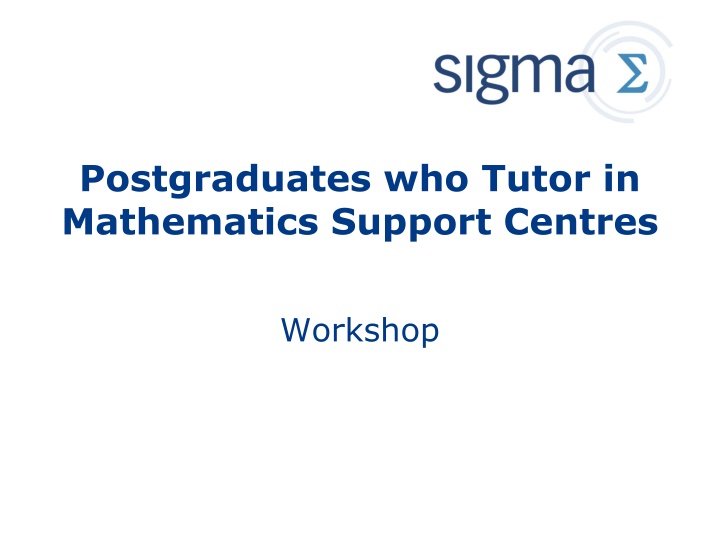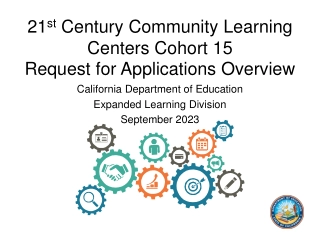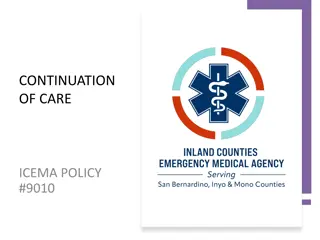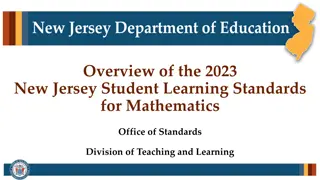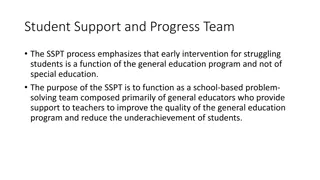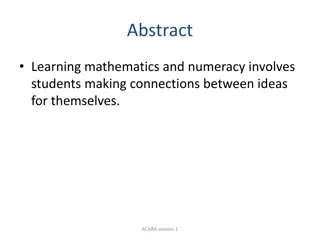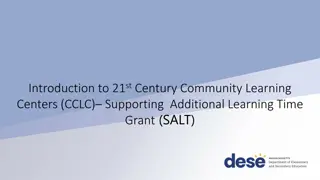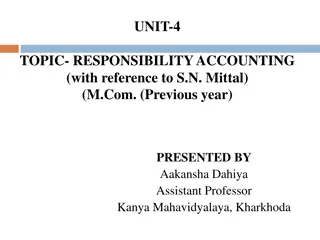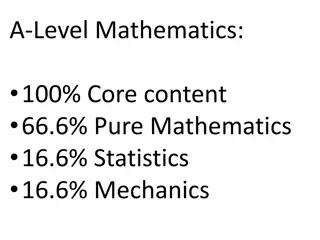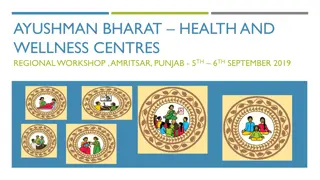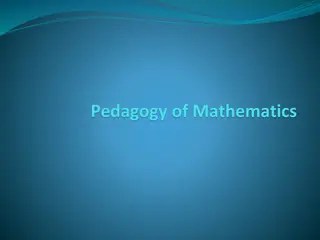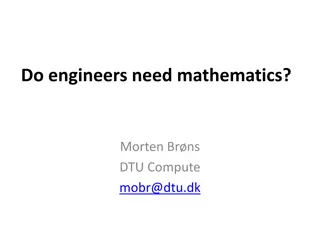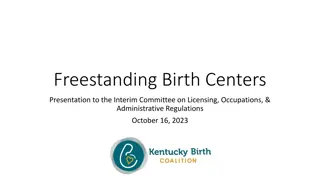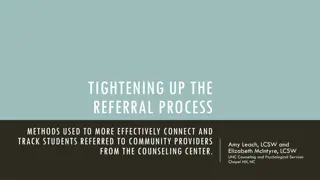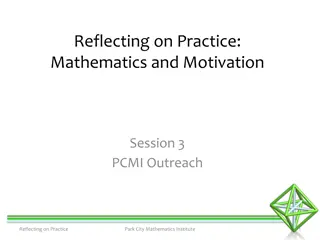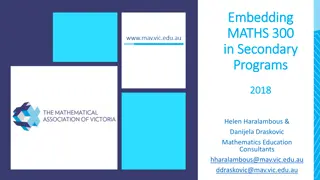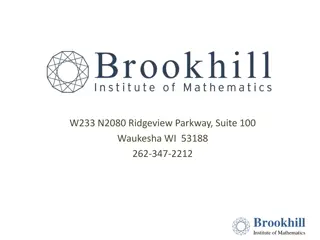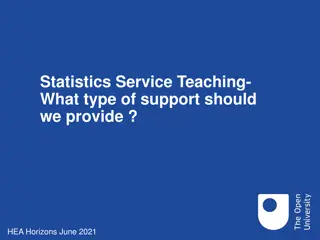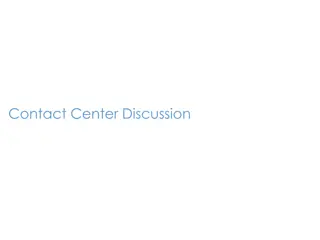Mathematics Support Centers: Enhancing Student Learning
Discover the role of mathematics support centers in higher education, offering activities and resources beyond traditional classes. Explore the concept, functions, and setup of these centers, including various ways support is provided, such as drop-in tutoring and web-based assistance. Learn about specific centers like MASH at Sheffield and Maths support at Loughborough. Dive into the key elements and significance of these centers in aiding students in math and statistics.
Download Presentation

Please find below an Image/Link to download the presentation.
The content on the website is provided AS IS for your information and personal use only. It may not be sold, licensed, or shared on other websites without obtaining consent from the author.If you encounter any issues during the download, it is possible that the publisher has removed the file from their server.
You are allowed to download the files provided on this website for personal or commercial use, subject to the condition that they are used lawfully. All files are the property of their respective owners.
The content on the website is provided AS IS for your information and personal use only. It may not be sold, licensed, or shared on other websites without obtaining consent from the author.
E N D
Presentation Transcript
Postgraduates who Tutor in Mathematics Support Centres Workshop
Initial Activity On your own, write down: One item that you want to learn or get from today At least one question that you would like answered by the end of this session
Mathematics support what is it ? What do you think it is ? What does this term mean to you ?
Mathematics support what is it ? [some suggested responses; these will vary from institution to institution] activities and/or resources provided to support and enhance students learning of mathematics or statistics in any subject, at any level of higher education, and which are provided separately and in addition to traditional lectures, tutorials, examples classes, personal tutorial sessions.
A mathematics support centre what is it ? What is a support centre ? What does your centre look like ? How does your centre operate ?
A mathematics support centre what is it ? [some suggested responses; these will vary from institution to institution] Dedicated (real) space in which to offer support Tutors available at specified times May contain a bank of resources May include student workspace May include access to computing and other facilities (e.g. video) May be located in a department or in a central service (e.g. library skills centre) May have dedicated staffing May be the focus of related initiatives
Support provided in different ways Drop-in tutors and/or postgraduates available for 1-1 help Appointment based Web-based (virtual classroom) Located in a maths (or other) department Located in a central study support facility Located in a Library Just for first years, just for engineers, Open to anyone at any level Maths Caf , Maths Arcade
A mathematics support centre what is it ? MASH at Sheffield Maths support at Loughborough
Mathematics support Why is it needed now ?
Mathematics support Why is it needed ? [some suggested responses; these will vary from institution to institution] In the UK maths support began to take off in the 1990s in response to many students struggling with mathematics at university Failure, withdrawal, disappointment, dissatisfaction Increasingly quantitative nature of many disciplines e.g. biosciences, social sciences Many many reports draw attention to a serious maths problem in the UK.
The mathematics problem a plethora of reports
The mathematics problem a plethora of reports higher education has little option but to accommodate to the students emerging from the current GCE [ie pre-university schooling] process. Prof. Sir Adrian Smith, 2004, Making Mathematics Count: Section 4.39
The mathematics problem a plethora of reports Acute problems now confront those teaching mathematics and mathematics-based modules across the full range of universities .. Prompt and effective support should be available to students whose mathematical background is found wanting .. Measuring the mathematics problem. Engineering Council (2000)
ACME report 2011 ACME Advisory Committee on Mathematics Education June 2011 We estimate that of those entering higher education in any year, some 330,000 would benefit from recent experience of studying some mathematics (including statistics) at a level beyond GCSE. At the moment fewer than 125,000 have done so. Over 60% of students entering higher education courses which require good mathematical skills beyond GCSE level have not benefitted from higher level study
Is the UK an outlier in upper secondary maths education ? Nuffield Foundation Report (2010) In a survey of 24 countries, England, Wales and Northern Ireland had the lowest levels of participation in upper secondary mathematics. They were the only countries in which fewer than 20% of upper secondary students study maths. This includes all mathematics qualifications at this level. England, Scotland, Wales and Northern Ireland are four of only six countries that do not require compulsory participation in mathematics at upper secondary for any students.
Current thinking: maths support support for all not just the struggling student, not just remedial enhancement model valuable contribution to improving employability of graduates League tables, competition, NSS and student satisfaction
Why is tutoring in a support centre different from module tutoring ?
Why is tutoring in a support centre different from module tutoring ? [some suggested responses; these will vary from institution to institution] Don t necessarily know who the students are, nor which departments they have come from. Don t necessarily know what they should have been taught, what they should have already learned. Students may be from departments which are not traditionally taught mathematics (e.g. geography, business studies) and may be very alienated, intimidated, nervous . Students may not want to discuss their problems with staff who teach them They may be poorly-prepared for what is expected of them More difficult to prepare
